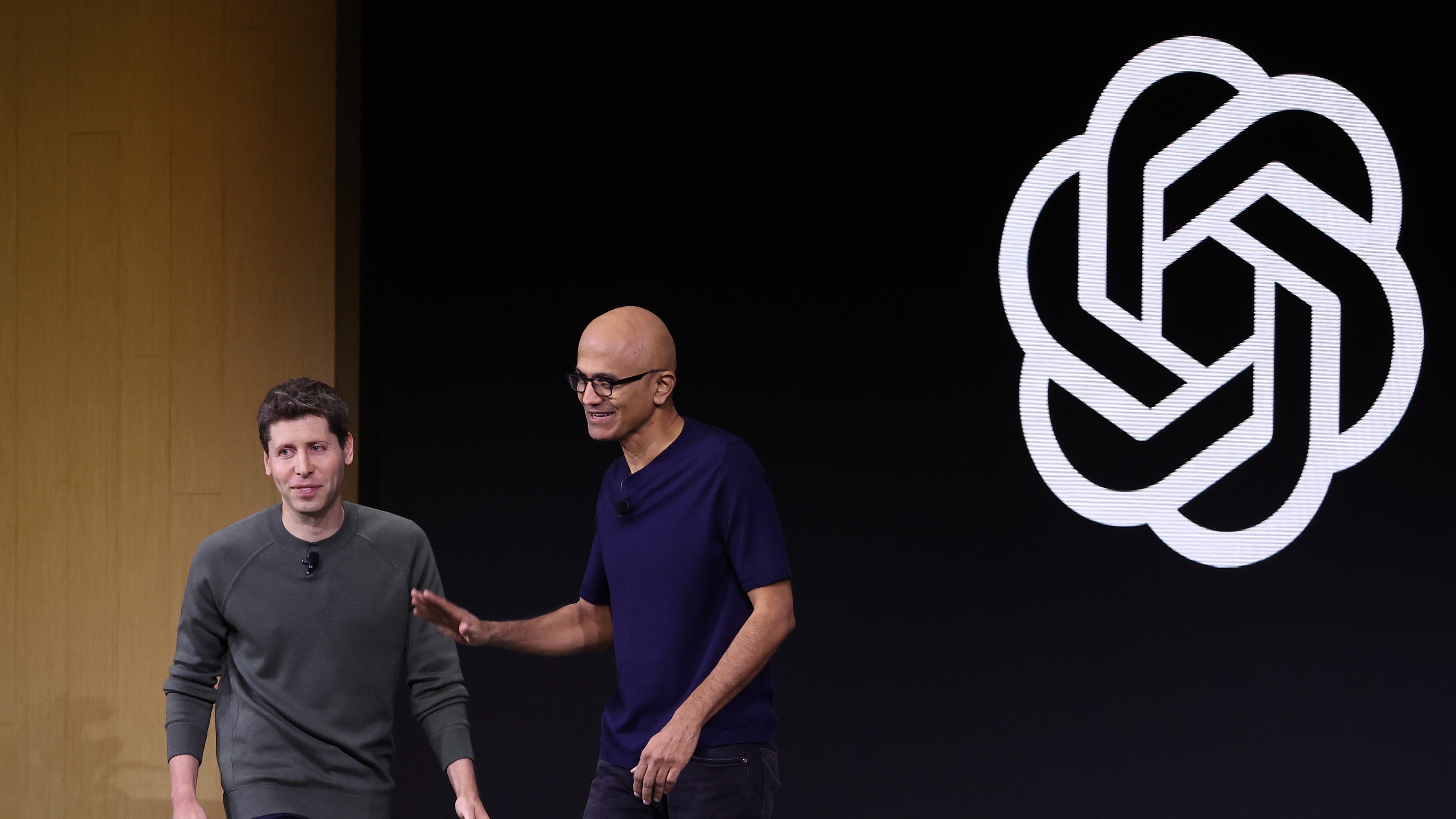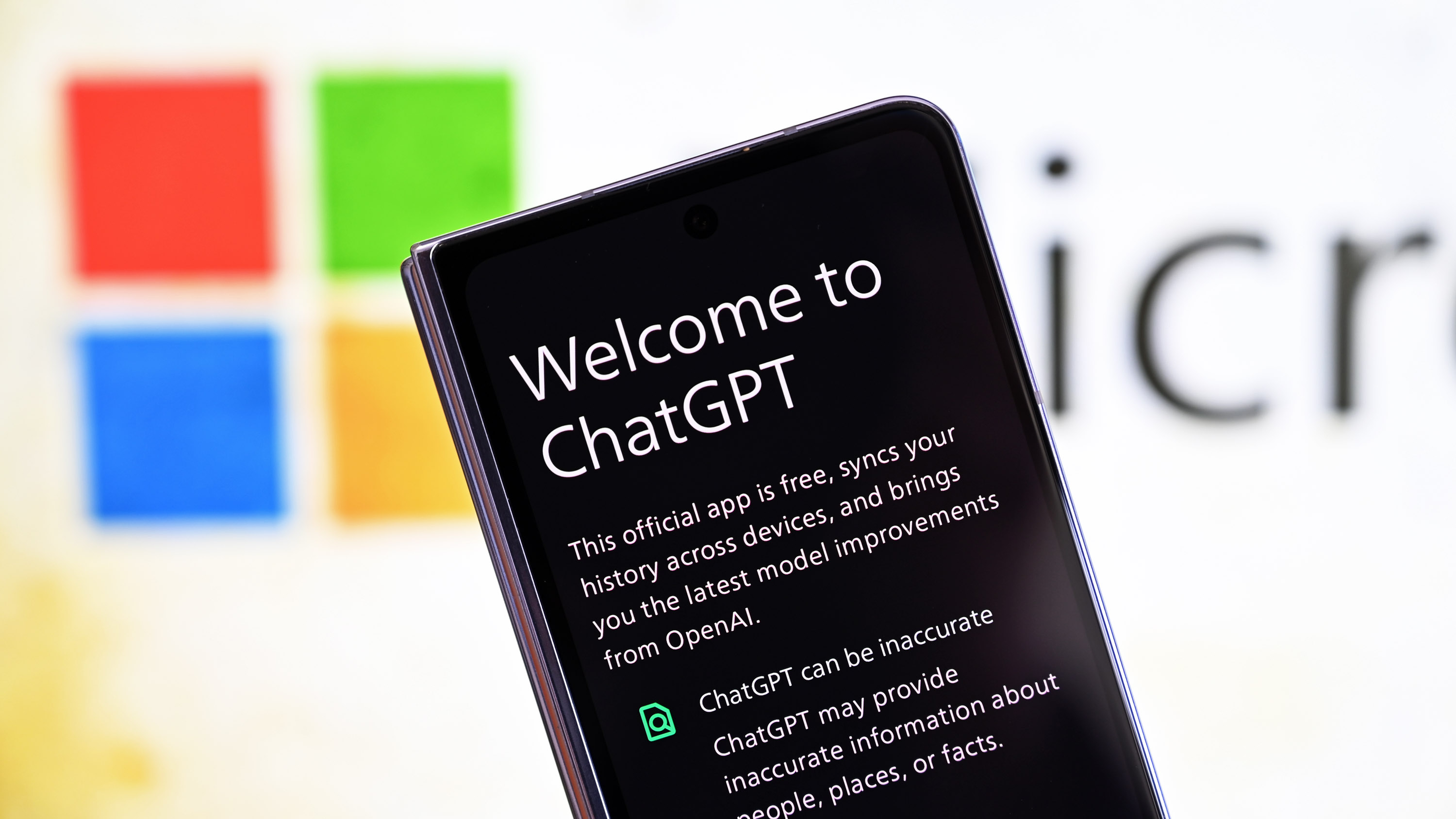
Put simply, AGI (Artificial General Intelligence) refers to an advanced form of artificial intelligence that not only performs tasks that we currently consider intelligent but also demonstrates capabilities that match or exceed those of a human being. It’s like the AI equivalent of a person with a wide range of intellectual abilities, rather than one limited to a specific task.
Although it may appear as just more tech talk, this specific term is significant because it forms a crucial aspect of Microsoft’s massive collaboration with OpenAI. One key provision within the contract makes it clear that the alliance will dissolve once OpenAI, the company behind ChatGPT, reaches this much-desired milestone.
It’s quite challenging to pinpoint exactly what Artificial General Intelligence (AGI) means for both Microsoft and OpenAI, as there are multiple interpretations. However, a document leak from earlier this year suggests that AGI, for them, is an AI system capable of earning profits up to $100 billion.
It’s intriguing to consider whether OpenAI could create a system capable of earning substantial profits, given the challenges posed by bankruptcy rumors and investor demands for transition into a profitable enterprise to ward off external influence and potential hostile acquisitions.
It appears that Microsoft’s collaboration with OpenAI might be heading towards some challenging discussions. With significant financial stakes involved, as Microsoft seeks to safeguard its $14 billion investment in the AI company, both parties are engaged in intense negotiations regarding the commercial development of OpenAI.
On the other hand, Microsoft expresses apprehension about OpenAI potentially announcing Artificial General Intelligence (AGI) too soon. Instead of resorting to legal action against ChatGPT’s creator, they might find themselves embroiled in a drawn-out court case for an extended duration.
According to an article in The Wall Street Journal, certain Microsoft leaders harbored doubts about a restrictive AI regulation in the contract, yet they consented, as their company was falling behind in the artificial intelligence competition.
Currently, it’s being discussed that OpenAI executives might announce the achievement of Artificial General Intelligence (AGI) by releasing an AI coding agent that surpasses the skills of a highly skilled human programmer (as per The Information).
Previously this year, Satya Nadella, CEO of Microsoft, labeled AGI (Artificial General Intelligence) milestones as “meaningless goalpost shifting.” Intriguingly, Sam Altman has recently acknowledged that our current computers and systems are not designed for an AI-centric world, which could prolong the achievement of the elusive AGI benchmark.
Microsoft and OpenAI’s partnership might have reached an impasse

It appears that Microsoft’s alliance with OpenAI could be at risk, as OpenAI considers legal action over allegations of anticompetitive practices by Microsoft. Specifically, OpenAI wants more freedom regarding the $3 billion Windsurf acquisition and its Intellectual Property. Additionally, a different report discloses that Microsoft is demanding a significantly larger stake in OpenAI’s Public Benefit Corporation (PBC) compared to what it is prepared to provide.
For several months now, there’s been a growing indication that the legendary partnership between tech giants, often referred to as the “tech bromance,” may be showing signs of strain. Microsoft, in response, has been actively working on creating its own proprietary models. This move could signify Microsoft’s pursuit of self-reliance and lessening its reliance on OpenAI for technology development.
According to Microsoft AI CEO Mustafa Suleyman, their off-frontier models are expected to trail OpenAI’s by 3 to 6 months, suggesting that Microsoft aims to maintain a competitive position rather than lead the pack. At the same time, Microsoft is also experimenting with third-party models within Copilot.
If the company behind ChatGPT proceeds with their plan to claim Artificial General Intelligence (AGI), they might find themselves in a position where they can break away from Microsoft, thus ending their intellectual property agreements and access to their premier AI systems.
In addition to financial support, Microsoft offers OpenAI access to cloud computing services that aid in their AI advancements. However, after the reveal of the $500 million Stargate project, which aims to build data centers nationwide in the U.S., this agreement was modified.
Therefore, Microsoft no longer holds its exclusive cloud provider position with Salesforce CEO Marc Benioff forecasting that Microsoft will not utilize OpenAI in the future. This prediction has led Microsoft to withdraw from two significant data center agreements, as they prefer not to offer extra assistance for the training of ChatGPT.
As an analyst, I’ve come to understand that Sam Altman, the CEO of OpenAI, has asserted that the company is no longer held back by computational limitations. There seems to be a disagreement between both parties, with Microsoft expressing concerns about GPT-4 being excessively slow and costly for their clients, while OpenAI appears frustrated over Microsoft’s failure to fulfill its cloud computing requirements. This situation could potentially pave the way for other competitors in the field of artificial general intelligence.
Read More
- Best Controller Settings for ARC Raiders
- Can You Visit Casino Sites While Using a VPN?
- Ashes of Creation Rogue Guide for Beginners
- Transformers Powers Up With ‘Brutal’ New Combaticon Reveal After 13 Years
- Lies of P 2 Team is “Fully Focused” on Development, But NEOWIZ Isn’t Sharing Specifics
- Crunchyroll Confirms Packed Dub Lineup for January 2026
- 5 Best Things 2010s X-Men Comics Brought To Marvel’s Mutants
- New Look at Sam Raimi’s Return to Horror After 17 Years Drops Ahead of Release: Watch The Trailer
- Unveiling the Quark-Gluon Plasma with Holographic Jets
- If you ditched Xbox for PC in 2025, this Hall Effect gamepad is the first accessory you should grab
2025-06-27 12:39